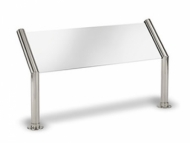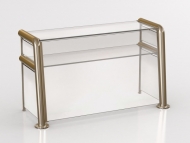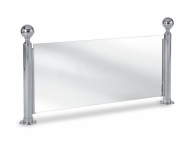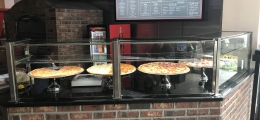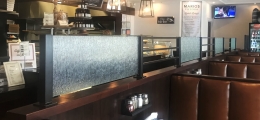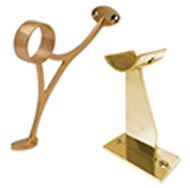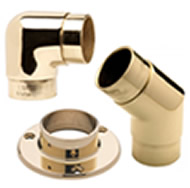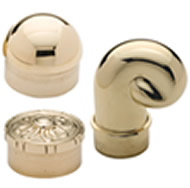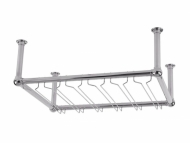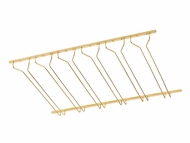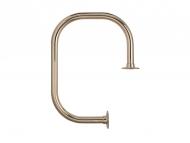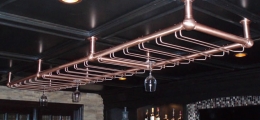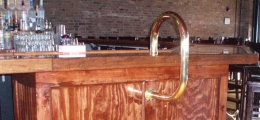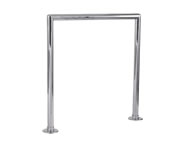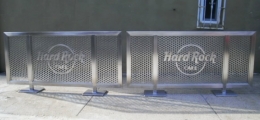Restaurant employee theft accounts for between $3 and $6 billion dollars each year in the restaurant industry. Some employee thefts are obvious and intentional, while other occurrences of stealing are harder to identify. They may be covert or even unintentional. Restaurant owners and managers need to be aware of these various methods and proactively fight against them. This list highlights seven different ways that your wait staff is probably stealing from you.
Incredibly, as many as 75 percent of employees admit to have stolen from their employer at least once.
Giving Customers Free Services
Bartenders and restaurant wait staff can greatly increase their chances of getting a tip when they offer guests free appetizers, free drinks or anything else on-the-house without approval. The employee may not directly consider such action stealing, but providing customers with free food or drinks does make the business lose money. A bartender than frequently over pours alcoholic beverages can quickly cause the bar to lose inventory. Ensure that all of your employees understand the seriousness of giving out unauthorized free food, drinks, coupons or services.
Unauthorized Breaks
Restaurant managers that fail to consider the impact of unauthorized breaks are likely to suffer from a loss of efficiency and potential profits. Even the best employees are tempted to peek at their phones or quickly respond to a text message, but these quick unauthorized breaks will interrupt the flow of your restaurant. Tasks can get overlooked while employees go out to smoke or respond to messages, and other staff members are likely to bear the burden of these neglected tasks. While a strict cell phone and break policy may seem overbearing, it’s the best way to ensure work flow isn’t interrupted.
Disingenuous Up-selling
Bartenders and restaurant wait staff are generally encouraged to try to up-sell, but it’s possible for up-selling to be done in a very disingenuous way. After a customer has had a few drinks already, bartenders may switch to a higher-grade and more expensive type of alcohol to up his individual sales. The customer is unlikely to refute the charge, but its important to educate staff against such tactics.
Not Reporting Mistakes
Restaurant owners and managers know that accidents and mistakes are commonplace in the restaurant business. While mistakes are not a huge deal, they do need to be accounted for. This unintentional loss is usually not a result of employee theft. Sometimes, however, employees will intentionally make mistakes to gain free food.
Reusing Receipts
Dishonest bartenders and wait staff will sometimes reuse receipts with the same order so that the system shows only one sale while they pocket the money from the second sale. This type of scam doesn’t leave any evidence on the register tape, so it’s important for managers to keep a close eye on inventory and the amount of time tickets are left open. If a bartender or wait staff often leaves all of their tickets open until the end of the day, then this should be considered a red flag for managers and restaurant owners.
Register Antics
Controlling the register gives an employee a lot of power to manipulate orders and sales. Dishonest employees can attempt to over-ring orders, under-ring orders, void sales, short-change the register or even tear up order tickets. When closing out the cash drawers, these various schemes can be difficult to prove. The cash register tape may serve as false evidence that matches up to the employee’s story. Some managers attempt to spread out cash register duties to prevent register antics, and another solution is to always have at least two employees count down the drawer at the end of the night.
Overcharging Customers
This type of restaurant employee stealing occurs when there is a discrepancy between how much a customer pays and how much they are charged for the order. The bartender may charge a customer full price for a drink, but the system registers a happy hour discount. They can pocket the change. This offense should not be taken lightly by restaurant or bar managers because overcharging a customer is an action taken by the employee with the direct intent to steal from both the customer and business. Overcharging customers usually requires a level of thoughtful planning, and such an occurrence should never “accidentally” happen with the same employee twice. If you notice a pattern of this type of behavior emerging, then it may be time to have a serious discussion about your employee’s future with the company.
Incredibly, as many as 75 percent of employees admit to have stolen from their employer at least once. Providing customers with free services, taking unauthorized breaks, not reporting mistakes, disingenuous up-selling, reusing receipts, skimming registers and overcharging customers are only a few of the many ways that your restaurant employees may be stealing from you. As a restaurant owner or manager, it’s crucial to identify losses from employee theft and find solutions moving forward to benefit your business.
TAGS: restaurants, management, wait-staff

